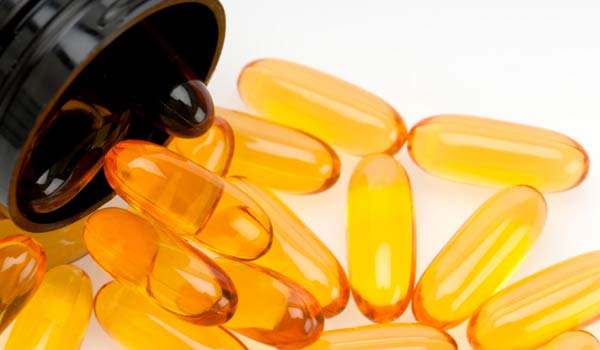Omega-3 Supplements May Help Boys with ADHD

Get the world’s most fascinating discoveries delivered straight to your inbox.
You are now subscribed
Your newsletter sign-up was successful
Want to add more newsletters?

Delivered Daily
Daily Newsletter
Sign up for the latest discoveries, groundbreaking research and fascinating breakthroughs that impact you and the wider world direct to your inbox.

Once a week
Life's Little Mysteries
Feed your curiosity with an exclusive mystery every week, solved with science and delivered direct to your inbox before it's seen anywhere else.

Once a week
How It Works
Sign up to our free science & technology newsletter for your weekly fix of fascinating articles, quick quizzes, amazing images, and more

Delivered daily
Space.com Newsletter
Breaking space news, the latest updates on rocket launches, skywatching events and more!

Once a month
Watch This Space
Sign up to our monthly entertainment newsletter to keep up with all our coverage of the latest sci-fi and space movies, tv shows, games and books.

Once a week
Night Sky This Week
Discover this week's must-see night sky events, moon phases, and stunning astrophotos. Sign up for our skywatching newsletter and explore the universe with us!
Join the club
Get full access to premium articles, exclusive features and a growing list of member rewards.
Boys with attention-deficit/hyperactivity disorder (ADHD) may benefit slightly from omega-3 fatty acid supplements, a new study from the Netherlands suggests.
The study involved 80 boys ages 8 to 14, about half of whom had been diagnosed with ADHD. The children consumed either a margarine enriched with omega-3 fatty acids, or a regular margarine, every day for 16 weeks. (The enriched margarine contained 650mg of docosahexaenoic acid, or DHA, and 650mg of eicosapentaenoic acid, or EPA.)
At the end of the study, the boys who'd consumed the omega-3 supplement saw a reduction in their attention problems — as rated by their parents — compared with those who did not consume the supplement.
Improvements in attention were seen in both children with and without ADHD, but the effect was greatest in those with ADHD, according to the study. [Typical Toddler Behavior, or ADHD? 10 Ways to Tell]
Most boys in the study with ADHD were already taking stimulant medications in addition to the omega-3 fatty acids. The study "offers support that omega-3 supplementation may be an effective augmentation for pharmacological treatments of ADHD," the researchers, from the University Medical Center Utrecht, wrote in a paper published online today (March 19) in the journal Neuropsychopharmacology.
The study was funded by Unilever Research & Development. The company was involved in the conception and design of the study, and made the margarine used in the study.
Previous studies on the topic have been mixed, with some studies finding a link between omega-3 fatty acid supplementation and reduced ADHD symptoms, and other studies finding no effect. A large review study in 2011, which included about 700 children with ADHD, found those who took omega-3 fatty acid supplements had a small improvement in the severity of their ADHD symptoms.
Get the world’s most fascinating discoveries delivered straight to your inbox.
Other studies have found that children with ADHD have lower levels of omgea-3 fatty acids in their blood, compared with kids who don't have the condition.
Although the new findings support the hypothesis that omega-3 fatty acids may be helpful for children with ADHD, "I wouldn't call it a definitive study," said Dr. Daniel Coury, chief of developmental/behavioral pediatrics at Nationwide Children's Hospital in Columbus, Ohio.
Coury noted that the new study was not able to get input from the children's teachers, who can provide an independent view of the child's behavior.
In addition, the effects of the omega-3 fatty acid supplement on the children's attention problems that was seen in the new study was not very large, Coury said. On the test of attention problems that the researchers used in the study, the highest score is 20 points and lower scores indicated fewer problems than higher scores. For children with ADHD who consumed omega-3s, the average score improved from 9.1 to 7.7. For children without ADHD who took omega-3s, the average score improved from 2.5 to 2.4.
These small improvements in scores may not translate into a meaningful improvement in children's everyday lives, Coury said.
Because omega-3 fatty acids are relatively safe, taking them would "certainly would be worth a try, but I doubt we're going to see a dramatic improvement," Coury said.
Dr. Anthony Rostain, a child and adolescent psychiatrist at The Children's Hospital of Philadelphia, said that the new study "helps to confirm what we already know," from previous research, which is that supplementation with omega-3 fatty acids may have a small effect on ADHD symptoms.
And because Americans tend not to get enough omega-3 fatty acids in their diet, supplementation for children with ADHD would not be a bad idea, Rostain said.
"I think that it's a good idea to add omega-3s to the diet, with the clear explanation to the parents that this is not going to give you a powerful effect, like a stimulant would," Rostain said. "This might augment the effect of the medication."
Children in the study also had their brains scanned while they performed a task intended to measure attention. There was no difference between the kids in the supplement group and those in the placebo group in terms of their performance or their brain activity during the task, the study found.
The reason why omega-3 fatty acids may affect ADHD symptoms is not known, but it is thought to be important for brain cells.
"Omega-3s are an important building block of the brain. It is abundantly present in the brain's cell membranes, where it is thought to facilitate the transmission of neural signals," said study researcher Dienke Bos, of the University Medical Center Utrecht.
Bos said it's important for children with and without ADHD to consume enough omega-3 fatty acids. One way to do this, besides supplementation, would be to eat fatty fish once or twice a week, Bos said.
Omega-3 fatty acid supplements usually do not have harmful side effects, according to the National Center for Complementary and Integrative Health. But the supplements may extend the time it takes for a wound to stop bleeding, so people who take other drugs that affect bleeding time should discuss the use of omega-3 fatty acid supplements with a health care provider, the NCCIH says.
Follow Rachael Rettner @RachaelRettner. FollowLive Science @livescience, Facebook & Google+. Original article on Live Science.

Rachael is a Live Science contributor, and was a former channel editor and senior writer for Live Science between 2010 and 2022. She has a master's degree in journalism from New York University's Science, Health and Environmental Reporting Program. She also holds a B.S. in molecular biology and an M.S. in biology from the University of California, San Diego. Her work has appeared in Scienceline, The Washington Post and Scientific American.
 Live Science Plus
Live Science Plus










